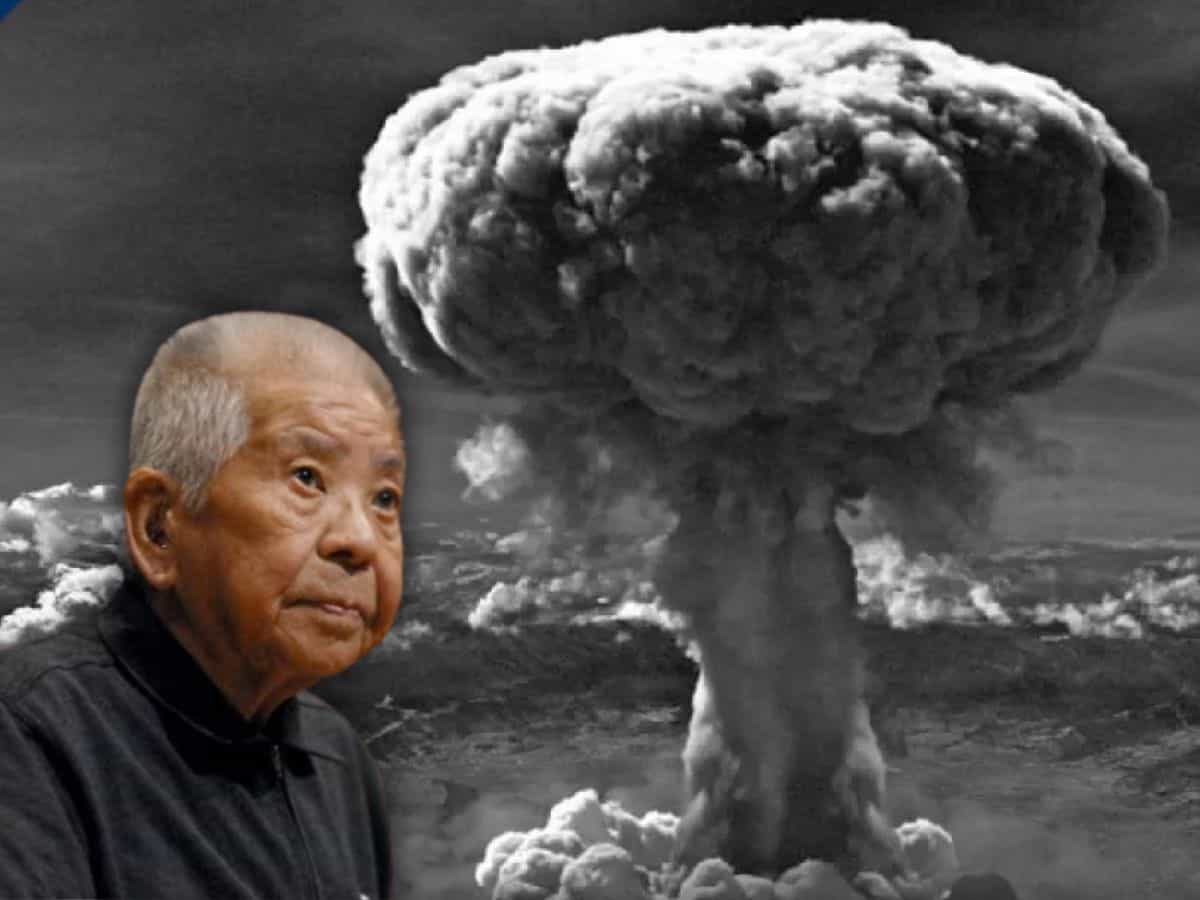
During the Second World War, the USA detonated two atomic bombs in Japan. On August 6th, 1945, Hiroshima became the first city in the history of the human race to experience the devastating destruction of an atomic bomb. Three days later the city of Nagasaki became the target. It was estimated that the two bombings together killed between 129,000 and 226,000 people.
But incredibly, there was a man who was at the centre of both bomb explosions who survived both times. His name was Tsutomo Yamaguchi, a resident of Nagaski who had gone to Hiroshima on work when the first bomb was dropped on the city. He was out in the open – barely three kilometres from the spot where the bomb hit. Miraculously he survived the enormous blast and then returned to his home town only to get the full impact of the second bomb three days later. Unbelievably he survived yet again.
How it happened
This is how it all happened. Yamaguchi was born in 1916 in Nagasaki and lived there till his adulthood. In the 1930s he joined the Mitsubishi Heavy Industries Company and worked as a draftsman. In 1945 his employers sent him to Hiroshima on a business trip. On the fateful day of 6th August, he was preparing to leave the city because he had completed his work there.
As he was on his way to the train station he realized he had forgotten his identification document and returned to his office to get it. At 8:15 AM, he was again walking on the road when the American B-29 bomber aircraft named Enola Gay dropped the atomic bomb only three kilometres away from Yamaguchi’s location on the open road.
Fire engulfed the entire sky
Yamaguchi later described the experience as an unbearable explosion. There was a huge flash and fire seemed to engulf the entire sky. Every building crumbled and became dust while Yamaguchi was blown across the road. The tremendous explosion ruptured his eardrums, blinded him temporarily and caused serious radiation burns on his body. But despite everything he crawled to an air raid shelter and rested there throughout the day.
The next day, although injured, he felt he was fit enough to travel and decided to return to Nagasaki where his family must be very worried about him. After reaching his hometown, he was received with great joy by his family members. He then received treatment for his wounds and despite being heavily bandaged, he reported for work on 9th of August.
At ground zero again
When he reached his office he was immediately surrounded by his colleagues who were eager to hear all about the blast which had devastated Hiroshima and how he himself had survived. Even as he was narrating his harrowing experience to his friends, at 11:00 a.m. an aircraft of the US Air Force dropped the second atom bomb on the city. Again Yamaguchi’s location was only about three kilometres away from ground zero.
He went through a miracle one more time. While many buildings in the area were flattened, Yamaguchi’s office building suffered damages but remained standing. Neither he nor his colleagues were seriously injured. But Yamaguchi’s previous injuries began reacting and soon he developed high fever.
It took him many days to recover his normal health but he did do so eventually. In the meantime, his country Japan, having been traumatized by two atomic bomb strikes decided to surrender to the Allied Forces and its role in the war came to an end.
Supporter of nuclear disarmament
In his old age Yamaguchi became a vocal supporter of nuclear disarmament. He told an interviewer: “The reason that I hate the atomic bomb is because of what it does to the dignity of human beings. I don’t understand why the world cannot see the agony of nuclear bombs. How can they keep developing these weapons?”
The Japanese government recognized Yamaguchi as the only person who survived two nuclear bombings. But Yamaguchi did not totally escape the effect of the bombs. He lost hearing in one ear, had to spend several years wrapped in bandages and suffered from radiation related ailments. Finally he died of stomach cancer at the age of 93.
Film on Oppenheimer rekindles debate
The devastation in Japan caused by the bombs is back in the news now because of the recently released film Oppenheimer. The film portrays the life and conflicts of the man known as the father of the atom bomb namely J. Robert Oppenheimer. He was the director of the project that created the bomb. The film has rekindled the contentious debate – should scientists work for the benefit of mankind or for its destruction? Perhaps this question may never be satisfactorily answered, at least not until the human race has gained more wisdom.

